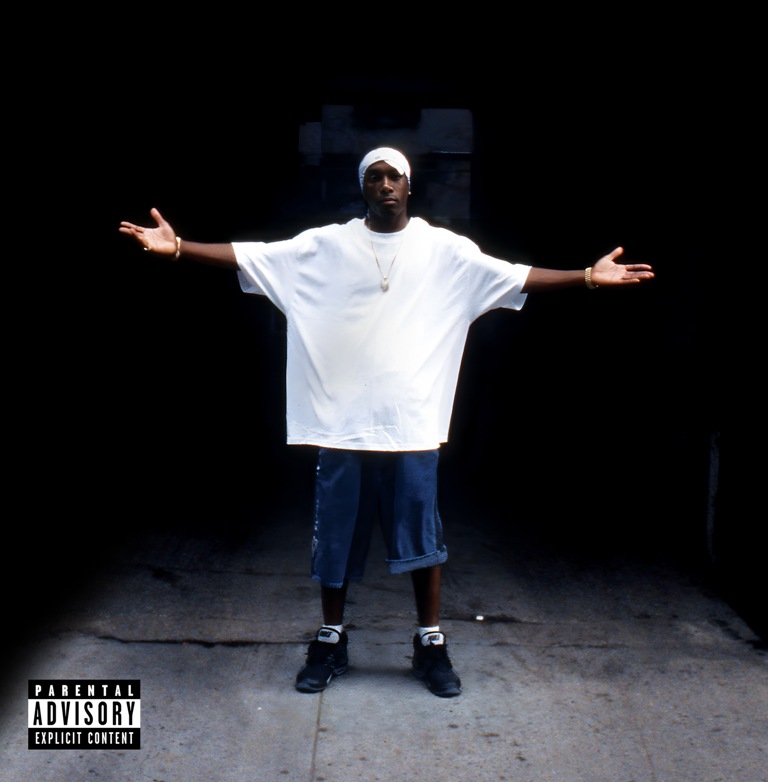On Wednesday afternoon (Feb. 26), Kevin Liles, co-founder of 300 Entertainment, sat with Soledad O’Brien at the Nasdaq building in New York City to discuss diversity and entrepreneurship in hip-hop as it relates to bridging the gap between business and community.
Two days shy of his 52nd birthday, Liles offered advice to the young people of color who’d gathered in the space. Why? Because it’s the right thing to do. “I only really care about moving our culture forward,” he told O’Brien earnestly during the conversation. He also expressed a desire to see more minorities set up in positions within the culture they essentially built and continue to fortify — instead of being squeezed out in favor of polished outsiders. With his family in the the front row at Nasdaq, Liles regaled the audience with anecdotes, tips of the trade and encouragement.
One young man stood during the Q&A portion of the afternoon’s panel, asking about ways to protect intellectual property. Liles didn’t waste a moment in answering: “One of the things … like, I loved music so much that I wasn’t worried about the team around me in the beginning. I was worried about the music, but after my song got stolen? I was worried about the people around me and my music.” The crowd tittered while the executive allowed an easy smile before continuing with his point: “I believe if you want something different, you have to have the right people around you to get those things.”
The afternoon before the panel, Liles offered Billboard some hindsight as it relates to his time in the industry.
“I would’ve told 16-year-old Kev not to worry about the music business, but to learn the business of music. I ended up having to deal with someone stealing my song and then having to sue them for infringing on the copyright. I would’ve told 23-year-old Kev to live a modest life until you have freedom.
“Don’t chase money — chase the freedom to do what you want, when you want, how you want and with who you want. And I would’ve told 30-year-old Kevin, when I became president and CEO of Def Jam, that at 50 you’re still young and you’ll still have opportunities, because I thought once you get to a certain age in hip-hop, it’s like, ‘Whoa. You’re done at 40.’”
That same day of the panel, his team arranged for a special birthday wish to beam from the Nasdaq jumbotron grazing the center of Times Square. Kevin Liles has watched hip-hop evolve from the inside for three decades, starting off as an intern at Def Jam in 1995. Seven years later, he had put in enough effort to be named the label’s president.
“I had a very unique situation. I came into a company that allowed people to lead and take risks,” he explains. “We had a co-founder that was African American and one of the most influential figures in our culture. I had a president at that time who slept on the floor of his friend’s house just to be Run-D.M.C.’s road manager, Lyor Cohen.”
These days, decades after his career debut at the house Russell Simmons and Rick Rubin built, Liles is a certified entrepreneur, respected by both peers and up-and-comers eager to learn about what they should expect while growing a brand. Even with the influx of instant and ever-changing information in this internet age, Liles maintains that there’s a particular energy and self-motivation needed in order to succeed.
“I don’t care what year it’s in, or what technology you may have, it’s a scary thing,” he shares. “To go from a place of security where you know every other week you’re gonna get something, to a place where you might not get anything and you might not ever get anything — you might lose it all.”
Long gone are the days of tangible effort — foot soldiers toting cassette singles and posters through major city landscapes. “But now, we have hundreds of thousands of music coming out every month, so that’s hard too!”] He doesn’t believe that today’s entrepreneurs have it any easier, even when considering the fact that entire careers have been established with a few keystrokes and a strong Wi-Fi connection.
“A big opportunity now would be ownership,” Liles says. “We’ve made all the mistakes and I’m sure we’ll make more, but there are blueprints out there on how to successfully start a company, how to own your masters. … There are more independent companies now more than ever and because of that, people aren’t just looking to become label president, they’re looking for ownership.”



